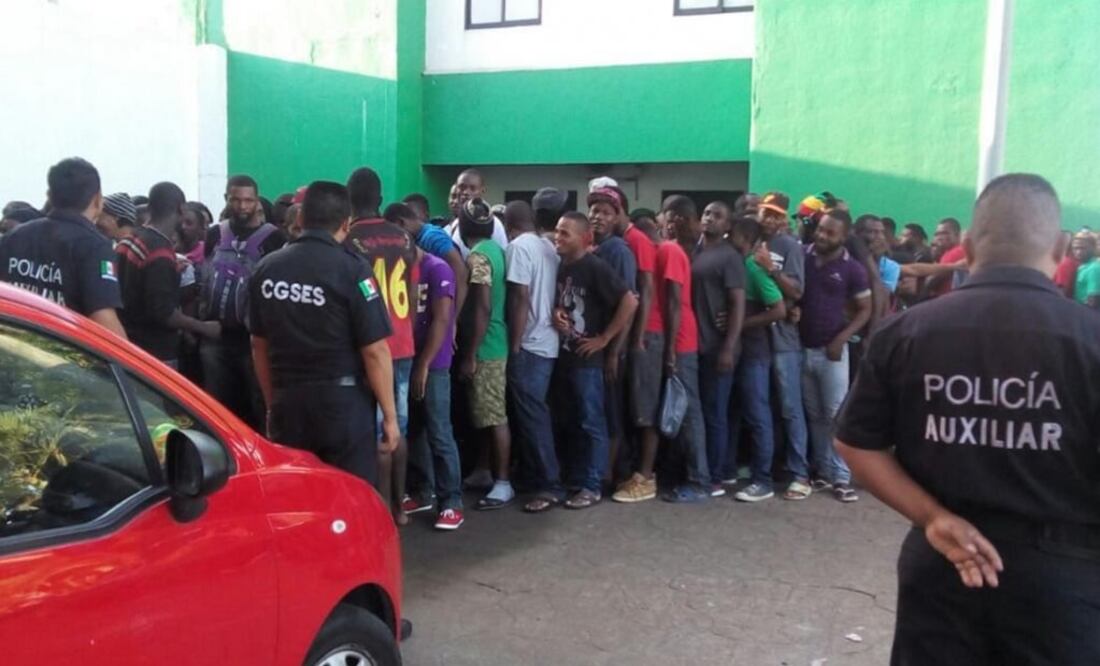Más Información

Harfuch revela detención de 14 personas vinculadas a huachicol fiscal; defiende a extitular de Marina

Vinculan a proceso a militar por abuso sexuales contra menor en Quintana Roo; lo acusan de privación de la libertad y lesiones

Entre protestas contra Adán Augusto, Andrea Chávez rinde informe de actividades en Chihuahua; “no a La Barredora”, reclaman

Elección judicial pasará a la historia, insiste Sheinbaum; celebra que ahora "los tres poderes responden al pueblo"

Marchan por cese de la violencia y restitución de la paz en Sinaloa; “Dios los acompaña”; obispo de Culiacán
The growing number of migrants from Africa, Asia and Haiti fleeing internal conflicts, poverty and insecurity is overwhelming the Siglo XXI Migration Facility of the National Migration Institute (INM) in Tapachula, Chiapas where approximately 500 arrivals from Africa are registered every day, some of who seek visas that allow them to move freely around the country and possibly travel to the United States.
Jordán Alegría Orantes, an INM delegate in Chiapas, said that the situation at the country's south border is unprecedented and as a result, there are no records of this type of migration, which includes children and pregnant women who require medical attention.
Alegría Orantes says that last year the Institute registered a total of 3,000 migrants from Africa, but from January to August 31 of this year, the Institute has registered a total of 7,000 migrants, and in the last month alone the number has increased to 8,000 migrants from Africa.
The delegate also said that their journey begins in Brazil, where the migrants travel to by plane and take advantage of South American countries' lax visa requirements. They then travel to Panama, Colombia, Costa Rica and finally Tapachula, Mexico.
The intercontinental migrants are primarily from Somalia, Bangladesh, the Republic of the Congo, Sri Lanka, Iran, Iraq, Nepal, Syria, China, Guinea, Eritrea, Ghana, Senegal, Ivory Coast, Mali and Haiti.








